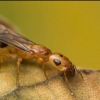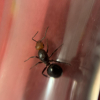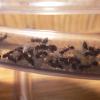I caught several of these queens in attempts to get them to accept brood from a host colony. I have only gotten this one to do so and she moved them all into the test tube on her own. She opened a pupa over night so she should stay alive unlike my previous attempts. If it comes to it I'll be "raiding" for them if I have the time but for now I'm more worried about getting the Formica rubicunda workers.This species are mostly raiders of Formica subsericea in which I gave her.

Edited by AntsAreUs, July 20 2018 - 5:44 AM.





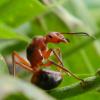

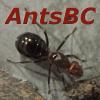










![[CA] Looking for Formica (can buy/trade) - last post by bmb1bee](https://www.formiculture.com/uploads/profile/photo-thumb-6841.jpg?_r=1649821237)
